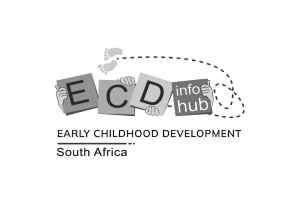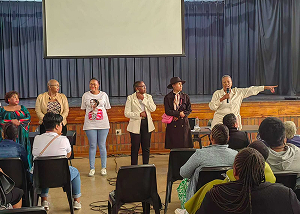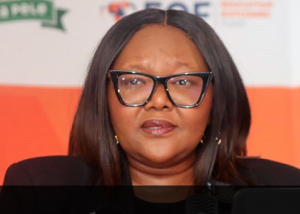By Theresa Michael
Afrika Tikkun
Inclusion in Early Childhood Development (ECD) Centres in South Africa
Inclusion has become a growing priority in the early childhood development (ECD) sector across South Africa. The vision is clear: every child, regardless of ability or disability, deserves access to high-quality early education. However, the question remains—are South African ECD centres truly ready to support children with severe disabilities?
The State of Inclusion in ECD Centres
ECD centres play a crucial role in shaping a child’s early learning experiences, providing the foundation for lifelong development. While many centres recognize the importance of inclusive practices, most are not yet fully prepared to accommodate children with severe disabilities. Several factors contribute to this lack of readiness, including inadequate infrastructure, insufficient teacher training, and a shortage of necessary resources.
Are Teachers Equipped?
Teachers are central to fostering an inclusive environment, but many South African ECD practitioners lack the specialized training needed to support children with severe disabilities. A recent study by the Department of Basic Education (DBE) found that only a small percentage of ECD teachers have received training in inclusive education. This knowledge gap leaves many educators feeling ill-equipped to support children with diverse needs, often resulting in these children being excluded or receiving inadequate attention.
Comprehensive teacher training programs focused on inclusion are essential. These programs should cover strategies for managing diverse classrooms, understanding different disabilities, and creating adaptive learning materials. Additionally, ongoing mentorship and support can help teachers feel more confident in implementing inclusive practices.
Is the Infrastructure Equipped?
One of the biggest barriers to inclusion in ECD centres is the lack of infrastructure designed to support children with severe disabilities. Many centres are housed in buildings that lack essential accessibility features such as ramps, accessible toilets, wide doorways, and safe outdoor play areas for children with mobility challenges. The absence of such infrastructure not only limits access but also fosters exclusion and frustration among children with disabilities.
To create truly inclusive spaces, ECD centres must invest in accessible infrastructure. This includes adapting furniture, providing sensory play areas, and ensuring that children with hearing or visual impairments have access to appropriate learning tools.
Government and Community Involvement
The South African government has made efforts to promote inclusive education, but more action is needed. Funding remains a significant challenge, particularly for ECD centres in rural areas that lack financial resources to implement necessary adjustments.
Collaboration between the government, private sector, and non-profit organizations can help bridge this gap. By working together, stakeholders can ensure that ECD centres receive the funding and support needed to upgrade infrastructure and train teachers.
Inclusion is not solely the responsibility of ECD centres; parents, caregivers, and communities must also advocate for inclusive practices and support children with disabilities in their development.
Afrika Tikkun Bambanani Leading the Way
Afrika Tikkun Bambanani is at the forefront of making inclusive ECD centres a reality. In partnership with the Department of Basic Education, they are working with NGOs and corporate partners to drive meaningful change. Their initiatives focus on training teachers, upgrading infrastructure, and ensuring that children with disabilities have equal learning opportunities in a supportive environment.
The Way Forward
The journey towards full inclusion in South Africa’s ECD sector is complex and requires a multi-faceted approach. It calls for a re-evaluation of how we train teachers, design learning environments, and approach education as a whole. Inclusion must move beyond being seen as a “nice-to-have” and be recognized as a fundamental right for every child.
By equipping teachers with the skills to support all learners and adapting infrastructure to accommodate diverse needs, South Africa can make significant strides towards building an inclusive education system. Achieving this will require commitment, collaboration, and investment—but the benefits for children and society as a whole will be immeasurable.
Are we ready for inclusion?
With the ongoing efforts of organizations like Afrika Tikkun Bambanani and their partners, we are moving closer to an environment where every child, regardless of ability, feels seen, supported, and valued.
*The comments in this article are those of the author and do not necessarily reflect the views and opinions of the DBE and UNICEF.*





